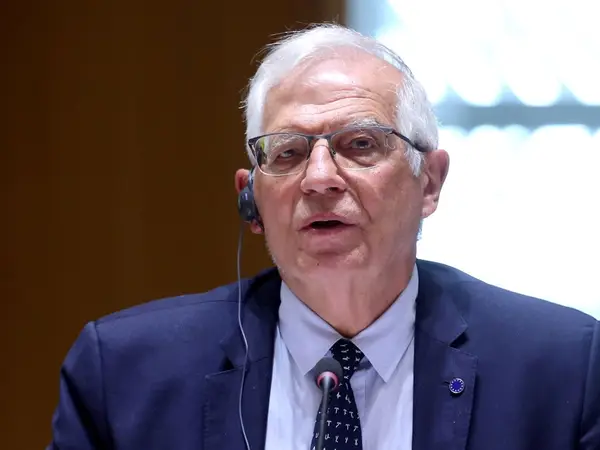The European Union foreign policy chief said Monday he awaited the United States’ views on an EU text aimed at easing revival of the 2015 Iran nuclear deal.
Speaking at a press conference at a seminar, Quo Vadis Europa, he is directing in Santander, Spain, Josep Borrell said an Iranian response August 15 to the text, which the EU had circulated August 8, was “reasonable.”
Borrell said the August 8 text represented the “the balance that I believe we can achieve.” There have been 16 months of talks between Iran and world powers trying to renew the 2015 agreement, the JCPOA (Joint Comprehensive Plan of Action), including EU-mediated US-Iran bilateral negotiations in Qatar in June.
While the EU had hoped, Borrell said, for a meeting in Vienna – presumably of all JCPOA signatories – “last week” after a positive US response, he said such a meeting might still happen this week.
While the contents of the talks have remained largely confidential, Iranian officials have since August 15 publicly emphasized Tehran’s search for ‘guarantees’ – both over sanctions and its nuclear program – should the US again leave the JCPOA, as it did in 2018 before imposing ‘maximum pressure’ threatening punitive action against buyers of Iranian oil or those dealing with its financial sector.
“I communicated this to those participating in the negotiation – the US and Iran, but also others, like the British, French, Chinese and the Russians,” Borrell said, omitting Germany, in English rendered by the official interpreter. “There was a response from Iran that I considered reasonable. This was transmitted to the US. The US has not formally provided a response, but we are waiting for their response and I hope that there’s a response that allows us to end the negotiation…I cannot assure you that this will happen.”
‘Safer place’
Borrell reiterated the EU’s commitment to restoring the JCPOA. “The world would be a safer place if we were able to make this agreement be [back] in place…It worked well until President Donald Trump unilaterally [announced May 2018] decided to abandon it. Iran was complying with it [accepting nuclear limits], and continued to do so for a few months more [until July 2019]. Now we need to make sure that everyone complies with it and Iran stops its nuclear program and receives the financial compensations [through eased sanctions] that were foreseen in the initial agreement.”
A statement from the White House Sunday, following a telephone call between President Joe Biden with French President Emmanuel Macron, German Chancellor Olaf Scholz, and British Prime Minister Boris Johnson – referred to “ongoing negotiations over Iran’s nuclear program” as well as “joint efforts to deter and constrain Iran’s destabilizing regional activities.” Laurence Norman, the Wall Street Journal reporter, tweeted Monday that “European sources” had told him the US could “work with” the Iranian input of August 15.
Iran’s Foreign Ministry Spokesman Nasser Kanaani said Monday the US was “procrastinating.”He said the talks could be judged fruitful, or not, “once the European Union announces it has received a response from the Americans.”
JCPOA opponents have continued to call for ending talks. Israeli Prime Minister Yair Lapid last week told Biden that continuing negotiations was a sign of “weakness.”
